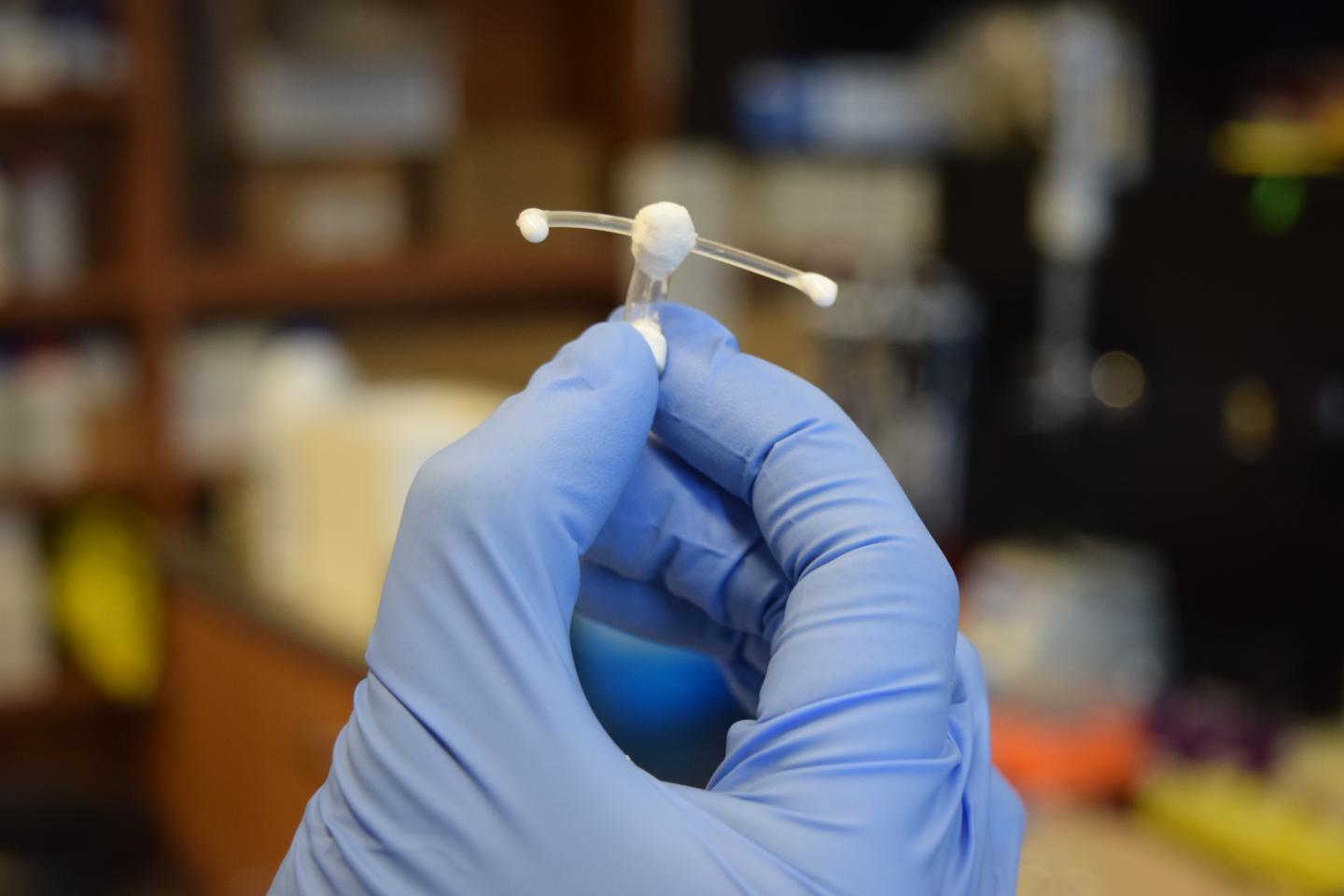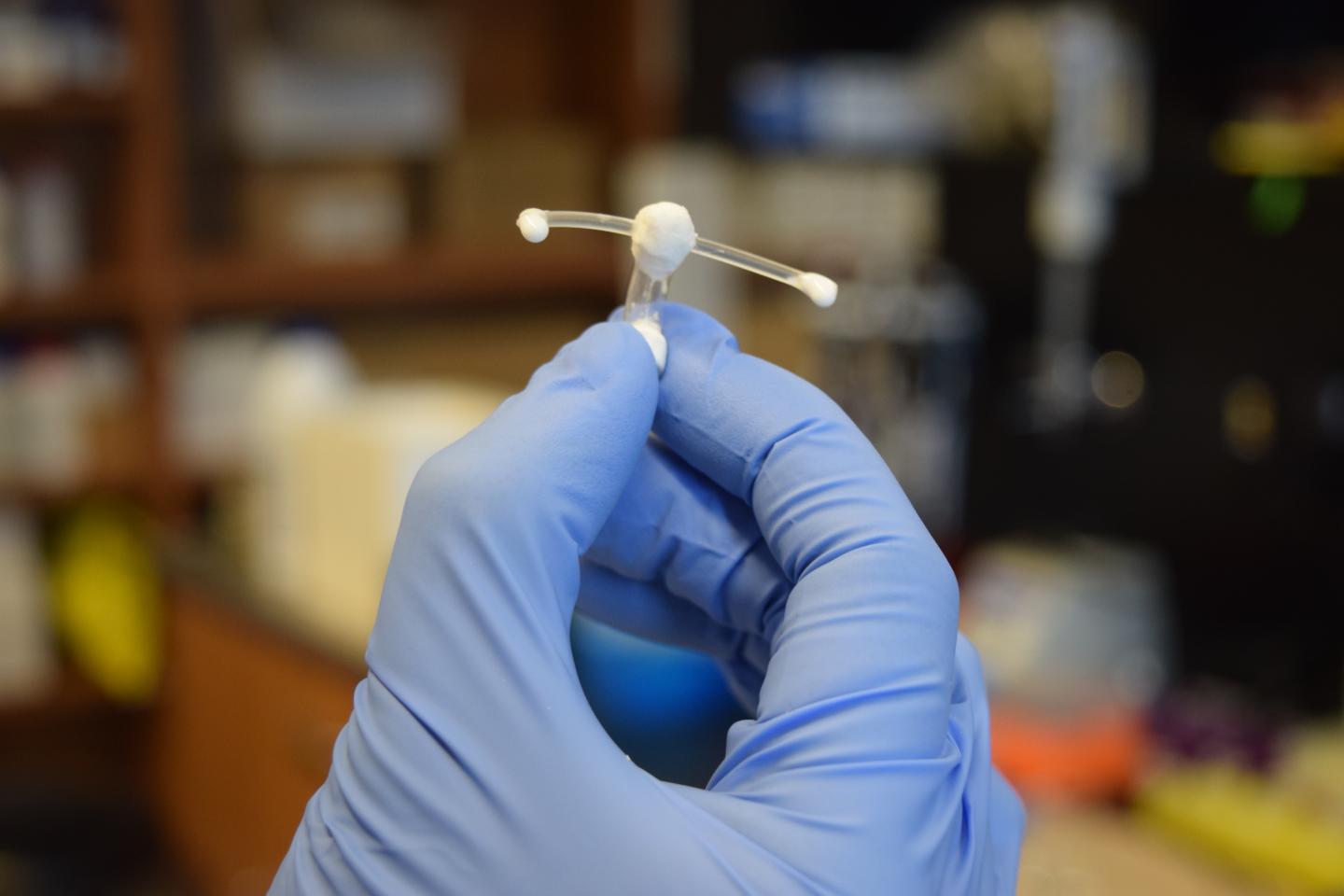
Credit: University of Waterloo
Scientists at the University of Waterloo have developed a new tool to protect women from HIV infection.
The tool, a vaginal implant, decreases the number of cells that the HIV virus can target in a woman's genital tract. Unlike conventional methods of HIV prevention, such as condoms or anti-HIV drugs, the implant takes advantage of some people's natural immunity to the virus.
HIV infects the body by corrupting T cells that are mobilized by the immune system when the virus enters a person's body. When the T cells stay resting and do not attempt to fight the virus they are not infected and the HIV virus is not transmitted between people. When the T cells stay resting, it's referred to as being immune quiescent.
"We know that some drugs taken orally never make it to the vaginal tract, so this implant could provide a more reliable way to encourage T cells not to respond to infection and therefore more reliably and cheaply prevent transmission," said Emmanuel Ho, a professor in the School of Pharmacy at Waterloo. "What we don't know yet is if this can be a stand-alone option for preventing HIV transmission or if it might be best used in conjunction with other prevention strategies. We aim to answer these questions with future research."
Ho's implant was inspired by previous research involving sex workers in Kenya. In Kenya, Ho and research partner Keith Fowke of the University of Manitoba, observed that many of these women who had sex with HIV positive clients but did not contract the virus. They later found the women possessed T cells that were naturally immune quiescent.
"Observing this, we asked ourselves if it was possible to pharmacologically induce immune quiescence with medication that was better assured of reaching the point of infection," said Ho. "By delivering the medication exactly where it's needed, we hoped to increase the chances of inducing immune quiescence."
The implant is composed of a hollow tube and two pliable arms to hold it in place. It contains hydroxychloroquine (HCQ) which is disseminated slowly through the porous material of the tube and absorbed by the walls of the vaginal tract.
The implants were tested in an animal model and the team observed a significant reduction in T cell activation, meaning that the vaginal tract was demonstrating an immune quiescent state.
The article recently appeared in the Journal of Controlled Release.
###
Media Contact
Ryon Jones
[email protected]
226-338-6564
@uWaterlooNews
http://www.uwaterloo.ca/





